State of Startups: Macro Trends and Tactical Tips
On February 16, Primary assembled a group of New York City's leading startup operators for a conversation about succeeding in the current market. Here are some key takeaways.
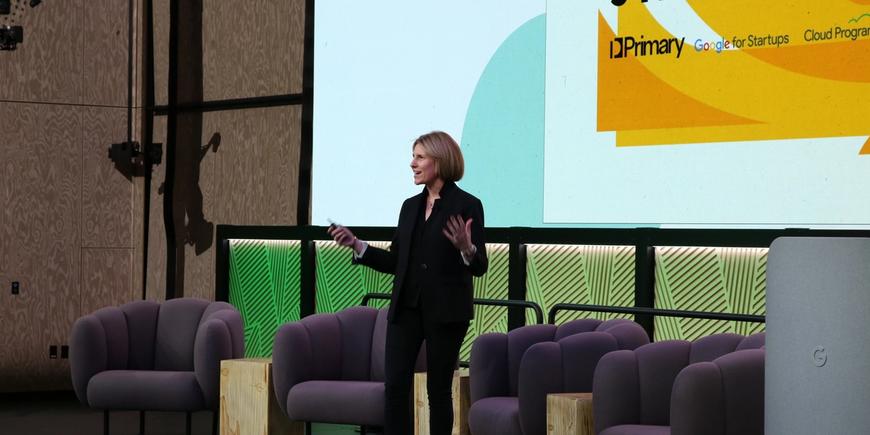
At State of Startups, Primary gathered 300 of NYC's most notable up-and-coming startup leaders for real-talk perspectives on where the market is moving and what experts have learned from past downturns.
Here are a few notable highlights:

Ben Sun on big-picture macro trends
Primary's Cofounding General Partner Ben Sun built a social internet business in New York in the late '90s. As the dot com crash came down all around him, he said it felt like, “I finally got to the party and the party was on fire.”
Ben did manage to see his business through that tough time, and his perspective now is that “we’re still at a pace that’s higher than the peak of the dot-com crash.”
Why? “In the year 2000, there were 100 million people on the internet globally. Now today, there are 6-7 billion people on the internet, 75% of the global population.” and “What we’ve seen is that even with this correction, there’s been an incredible amount of multibillion-dollar outcomes.”
“Be wary of headlines," Ben says. People love drumming up the negative news”
“We are going through this correction, people are seeing what’s happening, but there are going to be really incredible and transformative businesses created. It’s really natural for these cycles to happen. In these correction periods where capital becomes restrained, I actually think it’s an amazing time to build. Boundless optimism leads to costly false positives. Less capital creates more discipline. Positive feedback from customers in a tight market means you really have something durable."
But more than anything, his message was to hang in there. "VC backed startups drive more value and discovery than any other part of the economy. The work you’re doing is so important for the global economy.”
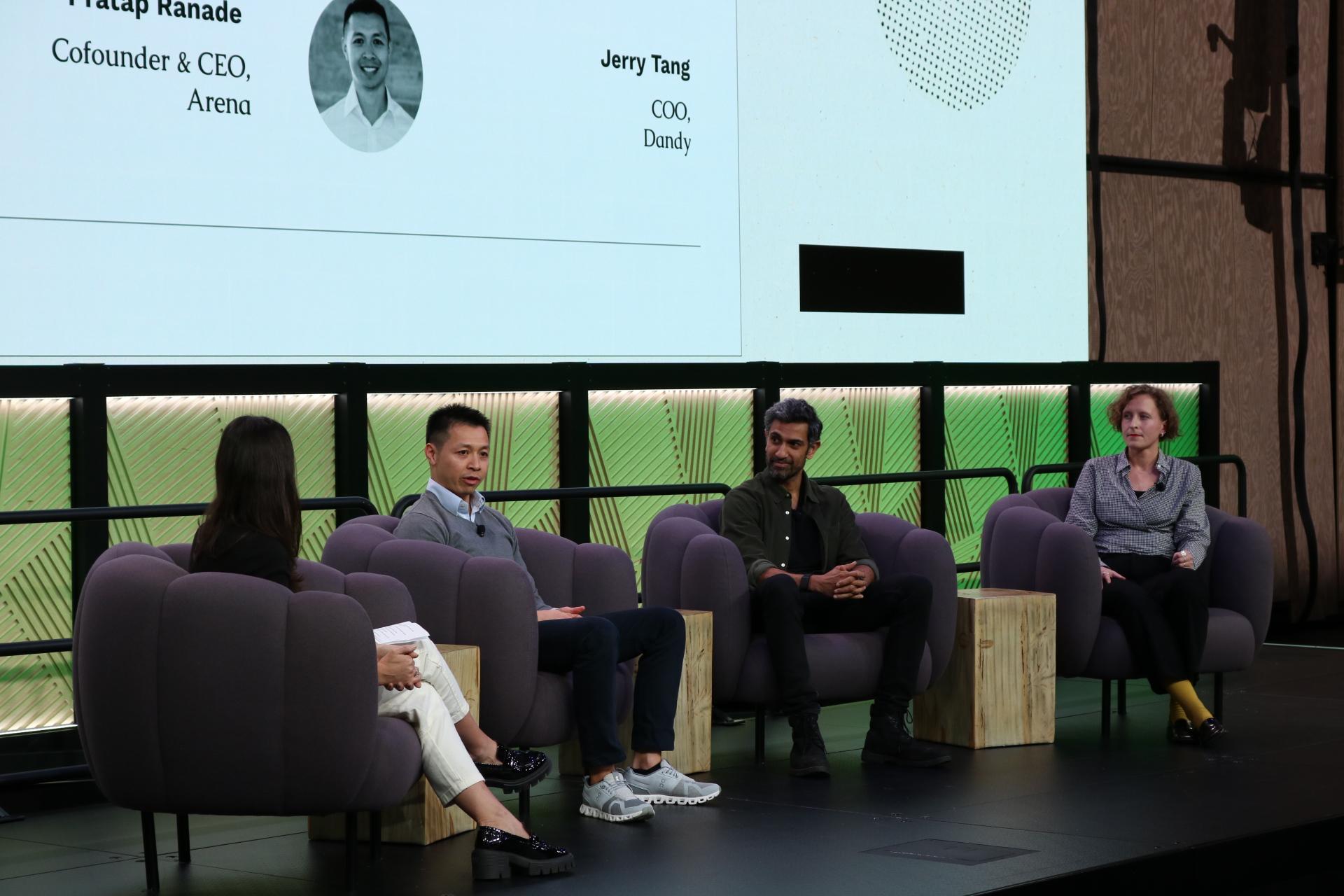
Rebecca Price's people perspectives with top operators
Rebecca Price, a Primary Partner and former Chief People Officer, invited a few standouts from Primary's network to join her onstage for a conversation about what Operators can do to be sure they're helping startups succeed in these more challenging markets.
As Rebecca points out, "Now is a time for Operators to control the controllables. Faced with uncertainties, know that if you're growing your knowledge and network, you can take that anywhere."
Jerry Tang, COO at Dandy, on thriving in this market
“You hear a lot about layoffs, but the reality is it’s no better time to be top talent. If you can combine creativity with practical logic, that’s what’s needed today. We’ll come out stronger and be ready to ride the curve on the way up.
Be able to plan the beans and count the beans. When you’re in a startup, it’s easy to lose sight of the fundamentals. Today more than ever, you have to know where every penny is going.
Listen and trust the people who have been there before. When you’re young, smart, and hungry, sometimes it’s easy to lose patience with how quickly something is coming true or not.”
Pratap Ranade, CEO and Cofounder at Arena AI, on managing high-velocity teams
“Your high performers are often the ones who don’t feel as safe as you’d expect." Spend time nurturing those relationships!
And don't be afraid to color outside the lines a bit in these times. "Your perceived risk is most likely way more than your actual risk exposure. It’s a really exciting time to play a little bit with the risk boundary. Do stuff. Don’t overthink. Execute.”
Zofia Ciechowska, VP of Strategy & Operations at Etsy, on what not to do
“Leaders are putting more pressures on teams to deliver. Simplify goals and reduce operational overhead. Stop forging with a process that’s not sticking within your organization. Strive for greatness, not for perfection. I think perfection is the enemy of speed.”
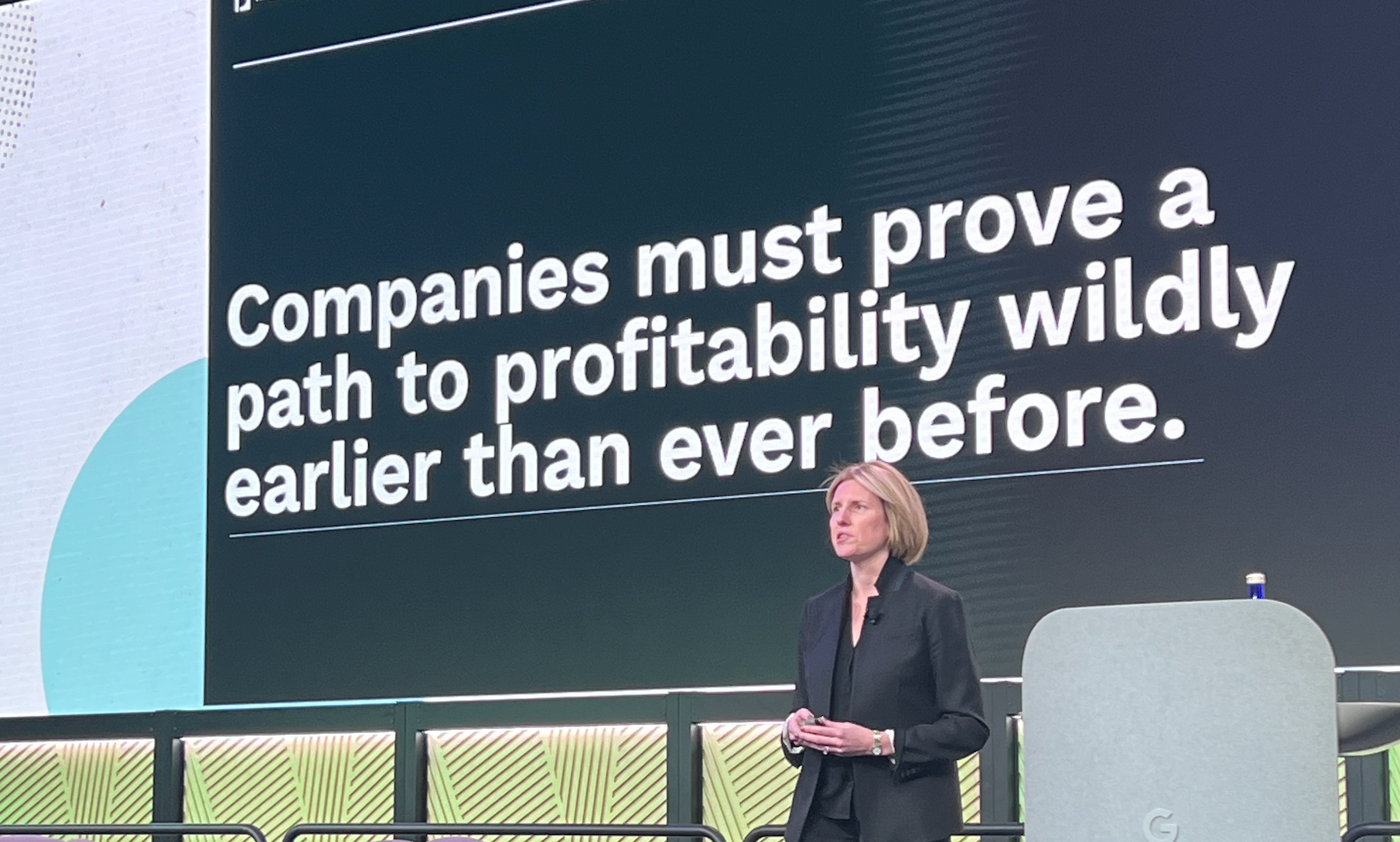
Cassie Young's tactical tips for minding the bottom line
Primary General Partner and former Chief Revenue Officer and Chief Customer Officer Cassie Young reminded the audience, "For any business, growth ultimately slows. And the reality is that every company, regardless of stage, needs to be on a path to prove profitability way earlier than ever before.” She then took the room through detailed examples of how these five principles can help every member of the organization participate in doing that.
1. Challenge the economics of your service model. If customer segmentation analysis shows you're spending the majority of support hours on your smallest clients, that could suggest the product isn't well suited for their needs, or that you need to charge for support.
2. Do you have the right employee focus on the highest value type of work? Time tracking can seem daunting, but even very lightweight, back-of-envelope analysis can reveal opportunities to work smarter.
3. Consider investments to make your team more efficient. Once you understand where team time is being spent, there are opportunities to bring in administrative support, automate certain functions, or upgrade technology the team relies on.
4. Leverage support data to inform your product roadmap. Like tracking employee time, understanding the amount of support going into various product functions can be a huge unlock both operationally and from a product development standpoint.
5. Everyone plays a role in optimizing unit economics. Understand how your specific team helps influence the LTV/CAC equation, and get to know the levers you can pull to increase Annual Contract Value (ACV) or Gross Margin and to decrease churn rate.
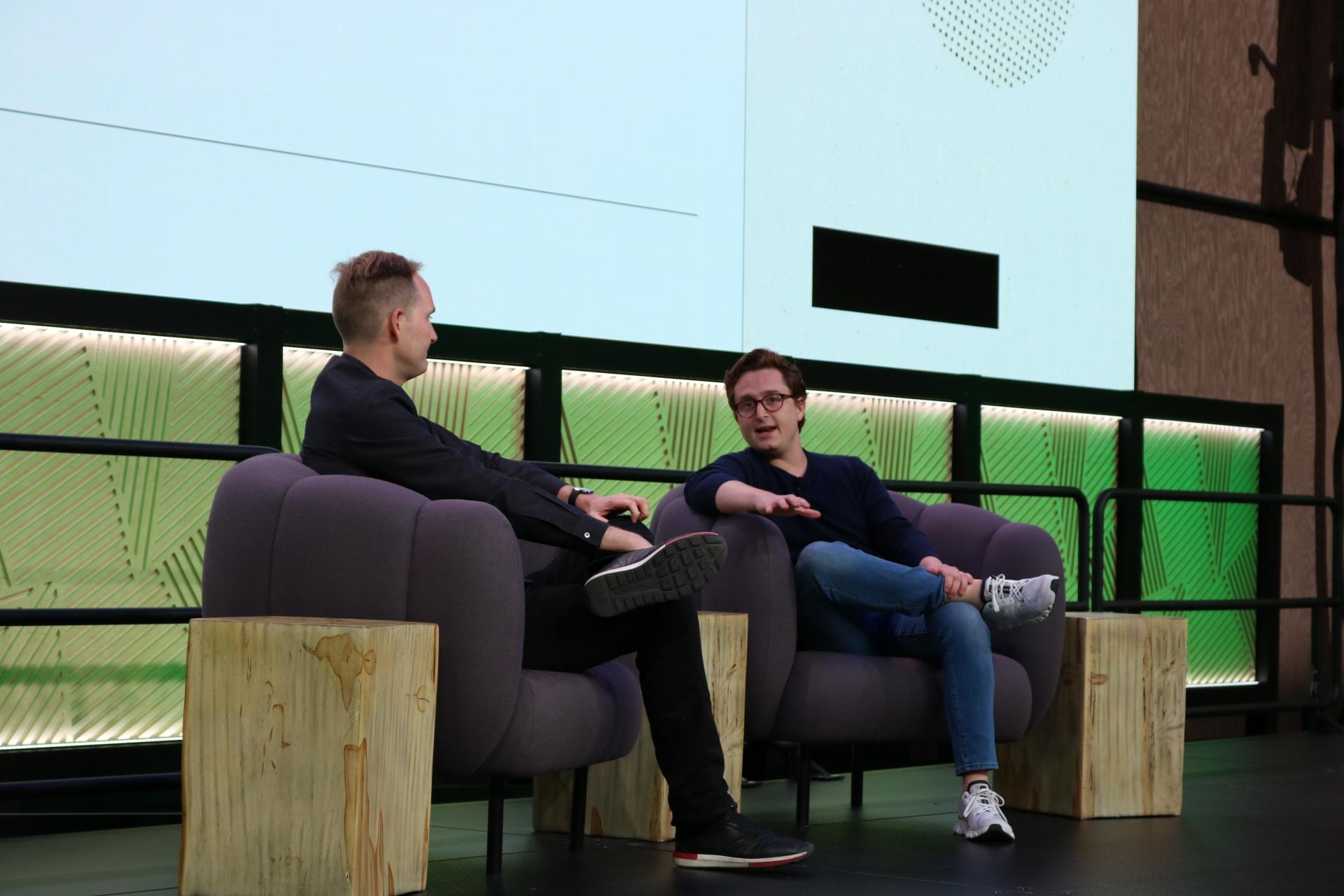
Jason Shuman on where VCs are investing now
In a fireside with GV's Erik Nordlander, Primary General Partner Jason Shuman said, "When I think about the biggest problems that our generation is facing today, a lot of it has to do with the housing crisis and labor shortage, and on top of that, you think about everything going on with climate change.
When I think about who can solve those problems, I personally like founders who are incredibly resourceful, can move really fast, and learn very quickly.
And the market you choose is incredibly important. If you put a bad founder in a good market, the market keeps its reputation. If you put a good founder in a bad market, the founder won’t keep their reputation.”
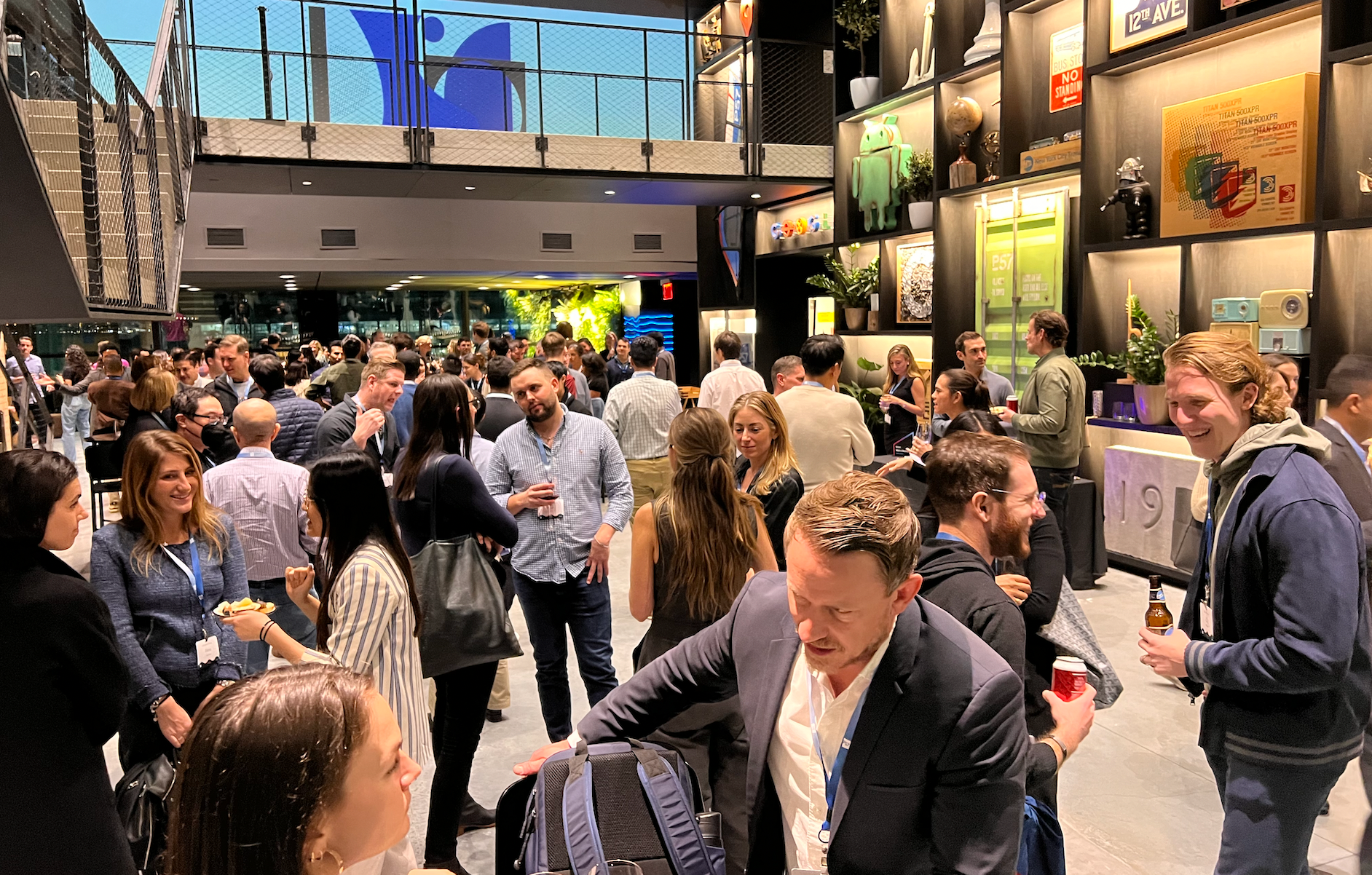
Operator learnings and takeaways
Amber Lyon, an Associate Director at Spring Health, shared: "I attended Primary Venture Partners' State of Startups Address last night and took away so many insights that will help me navigate the challenges my team will face this year.
For example, when I saw the below slide that Cassie Young walked us through it immediately resonated with me. For deals with contract sizes <$100k ARR, we spend a lot of time and bandwidth servicing these clients (more so than our larger clients actually) AND their NPS scores are also the lowest. Bottom line: The customer isn't as happy as they should be and neither are we. A lose/lose.
This tells me that my team needs to invest in automation, process and operational efficiencies to develop an SMB sales motion that serves us (the service provider) and them (the client). Just discussed this in two 1:1s today to get the ball rolling here, so thanks so much Cassie!"
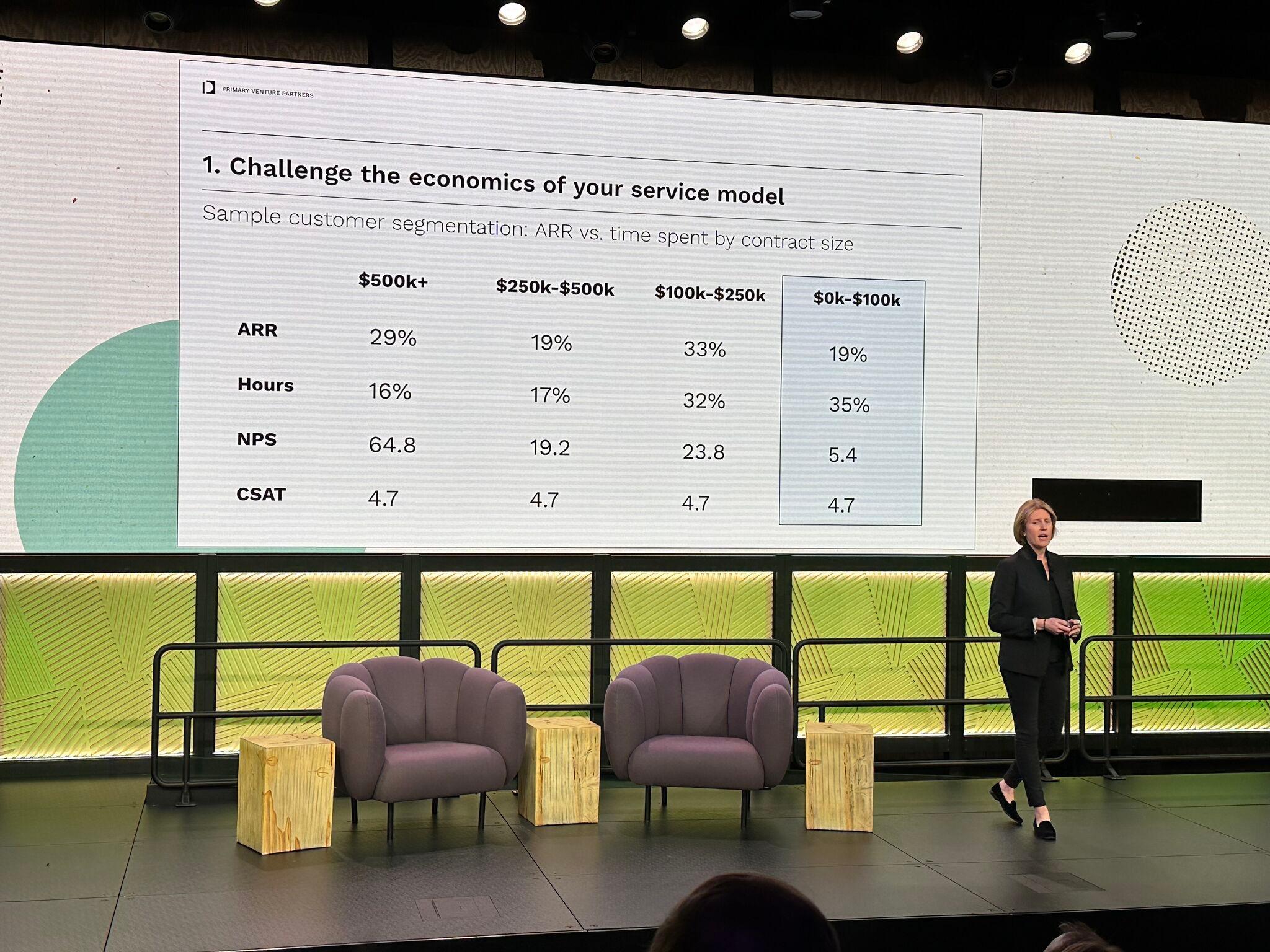
Pavilion Chief of Staff Rachel Rozen said, "I left feeling incredibly excited about the future of Startups in NYC. Here are some key takeaways I found interesting. 🚀
1. NYC startups are outpacing SF in growth- this is a trend that we should all keep an eye on. 👀
2. The power of product development is stronger than ever. As we saw in the photo, ChatGPT hit 1 million users in just 5 days, while it took Netflix 3.5 years to achieve the same milestone. This highlights the importance of products with low barriers to entry and low perceived customer effort, which are bound to soar. It's a reminder that with the right mindset and approach, the possibilities are endless.
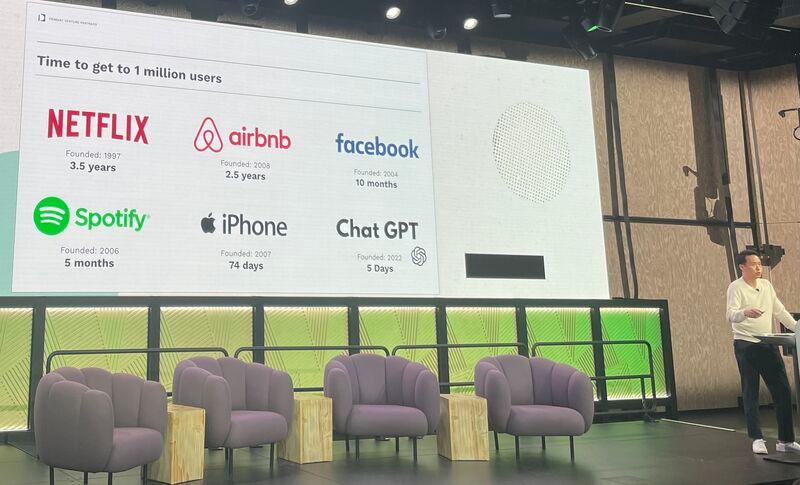
3. PropTech🏢and ClimateTech🌍are two hot industries being invested in today, which means there is a growing demand for innovation in these areas.
4. The event reminded us that the nature of market cycles with course correction means that time to build is increasing with less capital, which means operators need to be more disciplined in their organization. This doesn’t necessarily mean layoffs but re-orgs to solve the most important (3-5) problems now, not solve every problem as Zofia Ciechowska discussed.
5. Cassie Young spoke about evaluating the amount of time CSM’s are spending on support based on customer ACV. If the low ACV accounts are getting most of their time, it's time to make a change in the org. Better training and enablement for the end-user (i.e. resource centers), understanding common pain points amongst customers and making it a top priority to solve for those that are taking the team the most time to resolve (i.e. support tickets that have multiple touches).
6. Pratap Ranade's advice on perceived risk is a great motivator to take chances and step outside of our comfort zones. Sometimes, the biggest risks can lead to the greatest rewards, and we must not let fear hold us back from pursuing our goals.